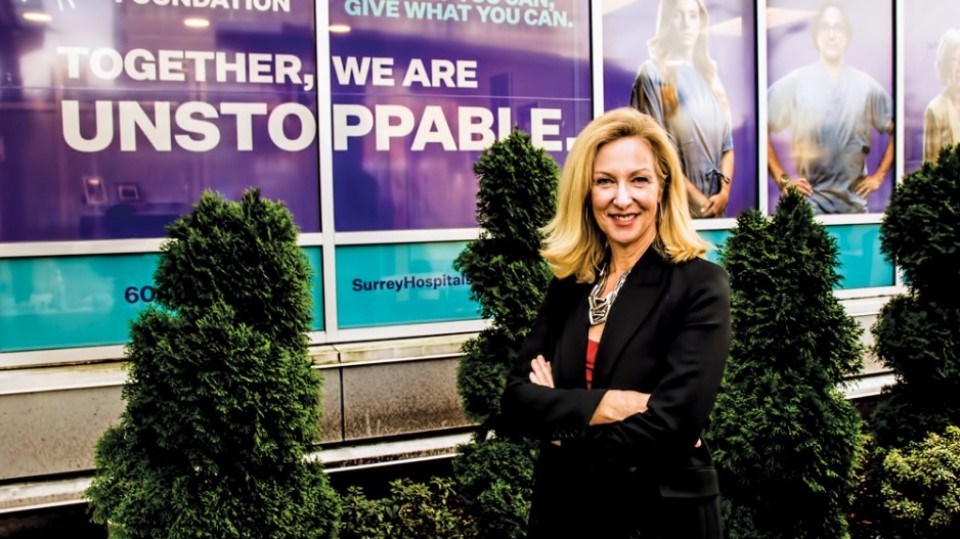One area of the economy hit hard by the pandemic but often overlooked in discussions of COVID-19’s impact is the charity sector, which relies heavily on live events, in-person gatherings and people having disposable income.
While the magnitude of the revenue loss for charities has fallen significantly since the early onset of the pandemic, an Imagine Canada report notes that Canadian charities are still suffering an average revenue decline of 10.4%.
“We discovered that people were interested in giving to health care [charities] and giving local, so if you weren’t [one of those charities], definitely there was a contraction in revenue and that affected services,” said Jane Adams, president and CEO of the Surrey Hospital Foundation. “People lost their jobs during the pandemic, and they had a need for social services, and those sectors were definitely hit harder than health care.”
Canadian charities are fighting a war on two fronts as donations are falling when demand for their services is surging.
Recently, 42% of Canadian charities have reported increases in demand beyond their capacity to deliver. Even charities with high demand are suffering average revenue declines of 15.6%.
Pandemic limits on in-person events have largely derailed traditional fundraising methods. That has forced charities to come up with COVID-compliant ways to raise funds. The Surrey Hospital Foundation is attempting to do just that with its new Lunch With a Leader campaign. The foundation recently hosted its first virtual auction to raise money to upgrade equipment at the Jim Pattison Outpatient Care and Surgery Centre. It turned to the centre’s namesake and original donor by hosting in November a month-long auction of six-guests private lunch with the Â鶹´«Ă˝Ół»billionaire tycoon.
The winning bid was $175,000.
Surrey Hospital Foundation has experience with live auctions. It holds them annually as part of its signature galas.
Its Lunch With a Leader campaign was inspired by a similar auction offering a lunch with Warren Buffett in support of a San Francisco-based homelessness and substance abuse charity.
Staging an online virtual auction allows people from across the country to bid, which Adams believes can help the foundation when it comes to an auction featuring a prominent business person like Jim Pattison.
While many charities have struggled to generate revenue through the pandemic, health-care-related charities have fared relatively well. Adams said donations for the Surrey Hospital Foundation increased during the pandemic.
“Although most charities in Canada saw their revenues contract by 30%, in health care, and hospitals in particular, most of us saw an increase in our revenues because the need was tremendous,” said Adams. “We needed to see that bump in revenue so we could help support the hospitals.”
Aside from the virtual auction, online communication has been key to the Surrey Hospital Foundation’s success.
Adams said the foundation invested more into its online presence with webinars and other virtual events.
Before the pandemic, most donations were made by cheque, but once the pandemic hit, donations largely moved online.
There seems to be a light at the end of the tunnel for charities. Their revenue declines are slowing, and as COVID-19 restrictions soften, they will have more opportunities to fundraise and more tools at their disposal to do so.
However, many charitable projects were stopped or delayed as attention and resources were re-routed during pandemic.
Adams is consequently worried that there will be challenges in trying to re-ignite excitement and donations for those projects.



